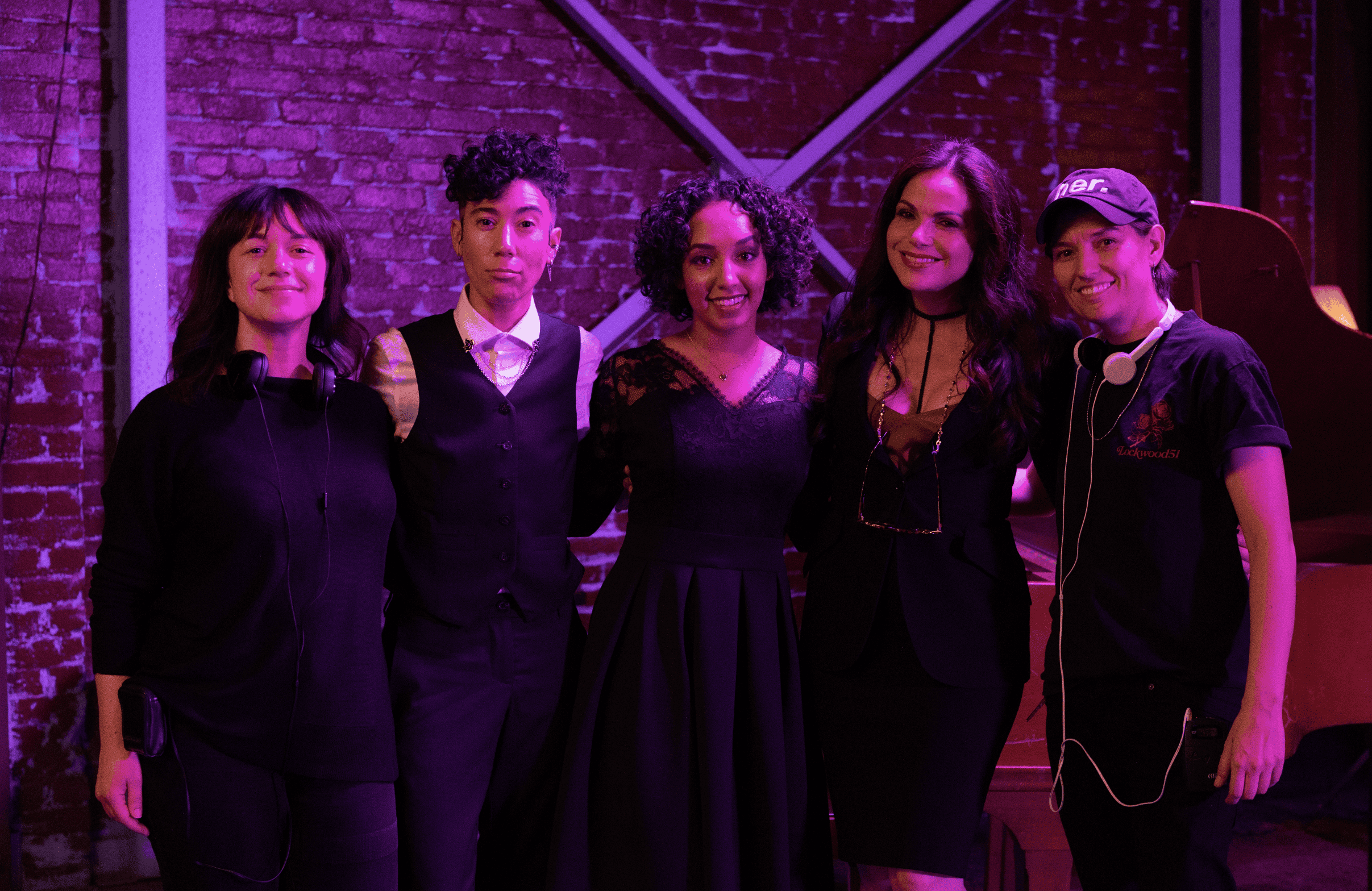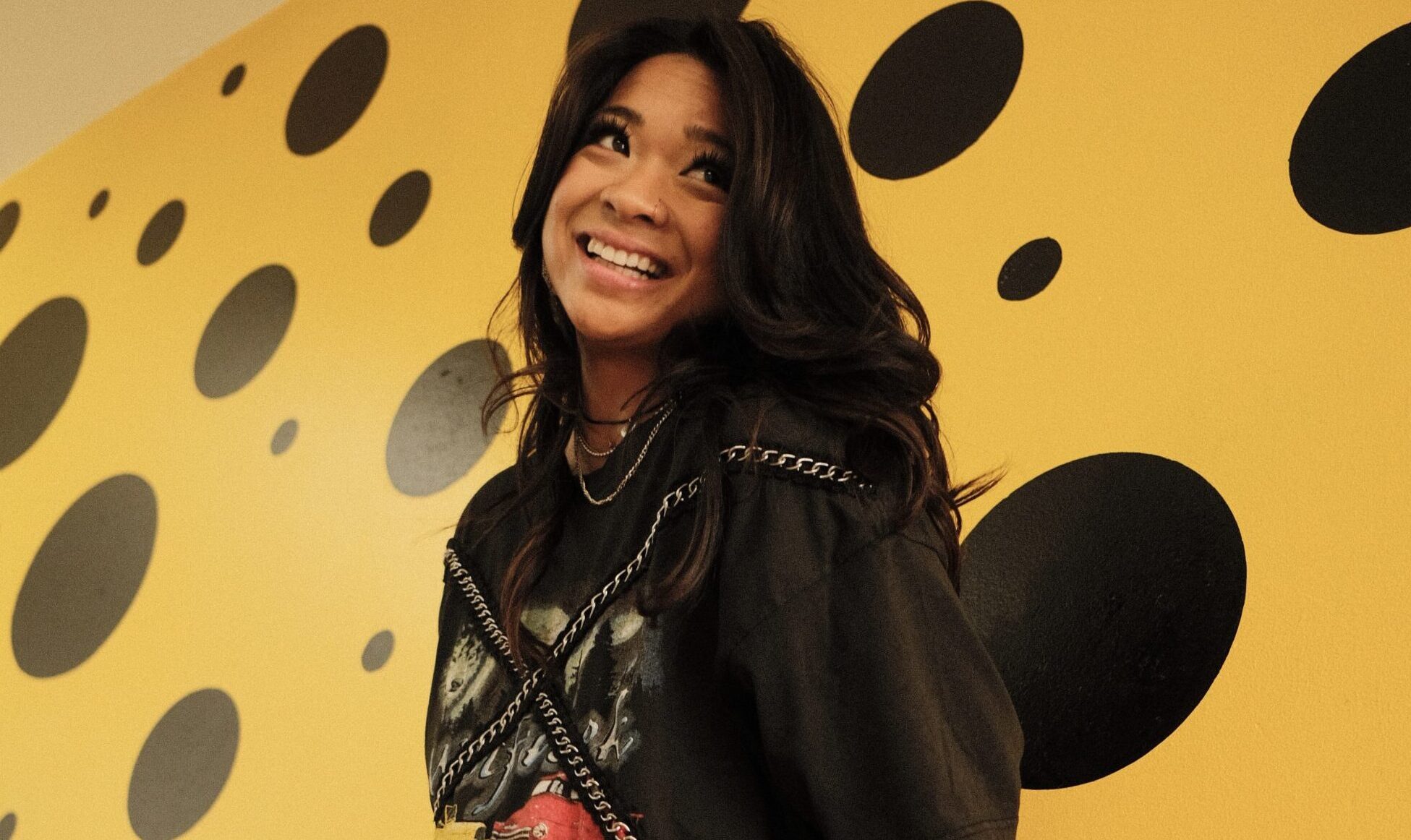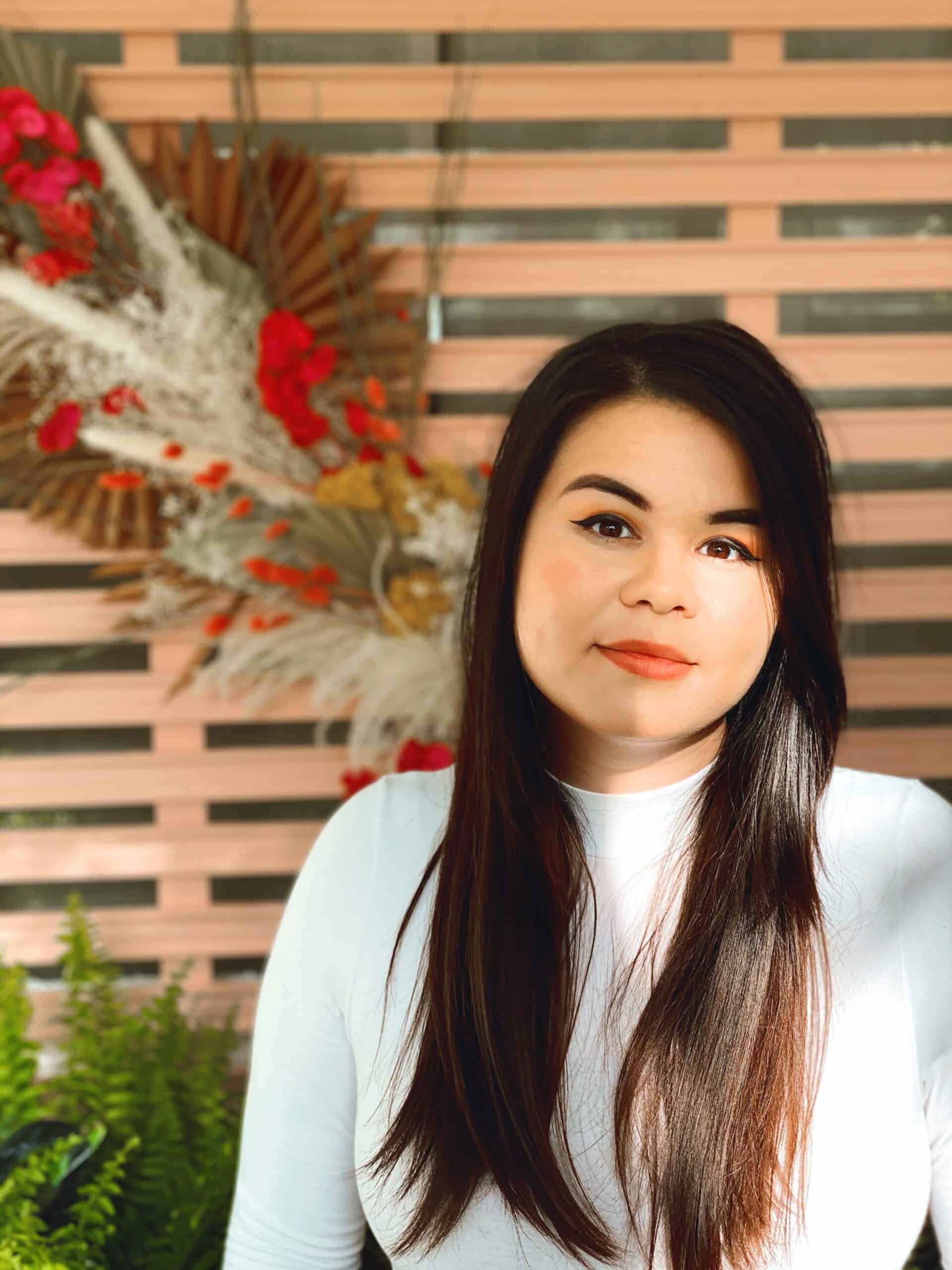Meet Tennessee Martin, a creative force whose journey from the southern charm of Tennessee to the bustling streets of Los Angeles has been nothing short of extraordinary. With a passion for storytelling ingrained since childhood, Martin’s transition from writing novellas in spiral-bound notebooks to crafting visually captivating films embodies the essence of artistic evolution. Inspired by personal experiences of love, grief, and romance, Martin’s latest project, “Lesbophilia,” emerges as an absurd dark comedy, offering a unique blend of introspection and humor. Join us as we delve into Martin’s creative process, crowdfunding success, and the transformative power of turning pain into pleasure through the art of filmmaking.
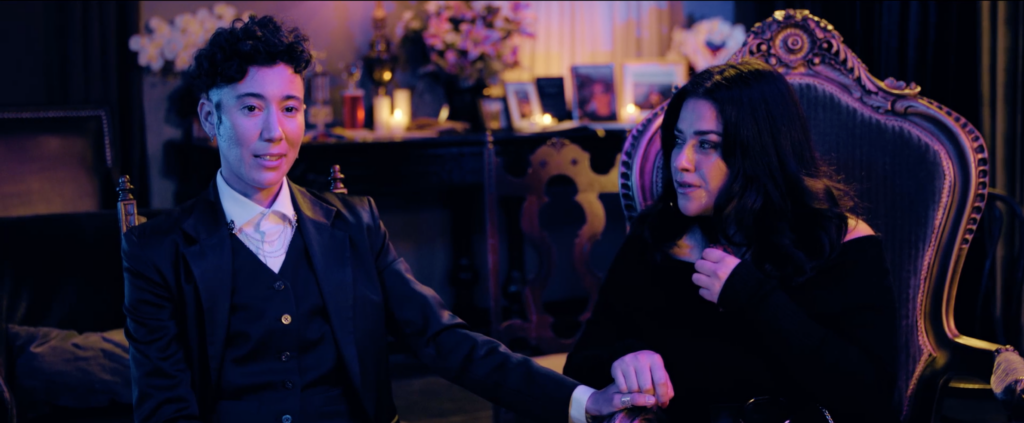
Can you share a bit about your personal journey and how it led you to create Lesbophilia?
I have always turned to writing as a way to process and express my emotions. Even as a kid growing up in the south, I’d hand-write novellas in spiral bound notebooks. I later went to college for creative writing, and while there I discovered filmmaking. I switched my major to digital film, focused on both writing and film production, and eventually made my way to Los Angeles to join the entertainment industry. I’ve always been told to write what you know, and am drawn to character driven stories. It’s difficult to tell visual stories about internalized emotions, so I often externalize those emotions in a metaphoric way.
What inspired you to turn your experiences with love, grief, and romance into an absurd dark comedy?
I was in the middle of a traumatic breakup with a woman who said she didn’t think she could be with another woman for the rest of her life. It triggered an anxiety dream where she essentially brought home a severed “male torso-to-thigh region”… appendage included… and said she had solved our problem of “needing a man.” Naturally, I woke up wondering what in the heck I’d just dreamt. I wrote it down, as I thought it might be an interesting story one day. That was six years ago. In 2022, Director Michelle West approached me looking for a short script. I didn’t have one on hand… but I had an idea…
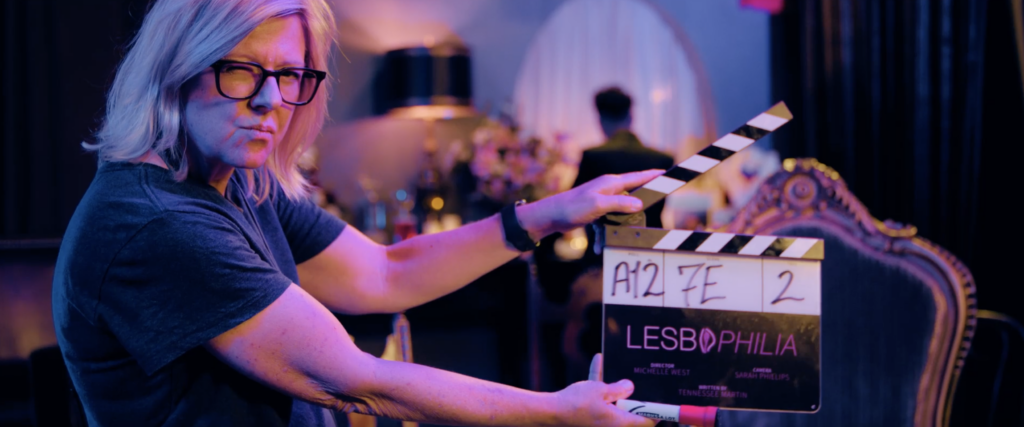
What motivated you to raise $74,000 for the project? Can you tell us about your experience with crowdfunding?
Everything starts with a budget. Once you have your script, your Line Producer does a budget breakdown, and you’ll get a general sense of how much money you’ll need to shoot your film. Michelle West and I had both crowdfunded before. Paying our cast and crew a reasonable wage was important to us and so was creating a very stylized film, so we set the bar much higher for Lesbophilia. We used Seed & Spark, a phenomenal crowdfunding platform that only requires your campaign to hit 80% of its goal to get a greenlight. They also have a lot of perks for filmmakers who succeed, which becomes very useful in later stages of the process. There’s a lot of psychology behind crowdfunding, so it’s important to have a strategy before launching your campaign. We had a large, dedicated team and used a crowdfunding consultant to help us hit our lofty goal.
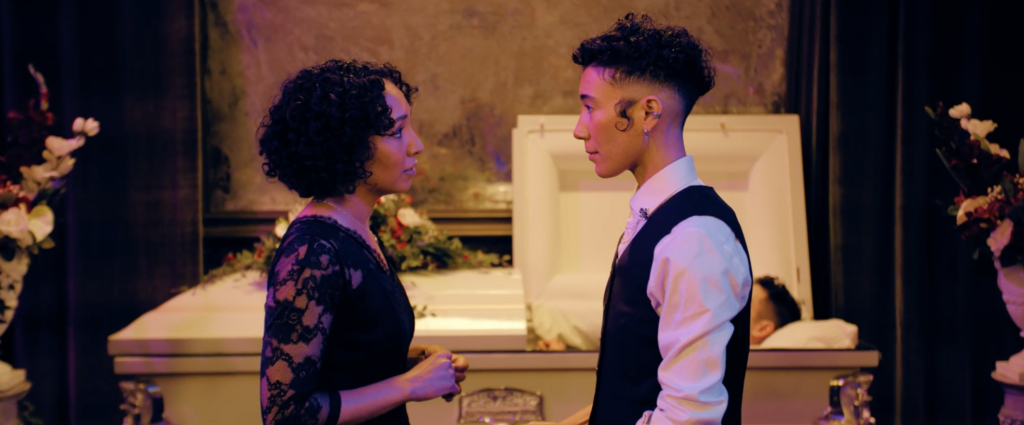
How did the process of turning your anxiety dream into a short film unfold? Were there any significant challenges you faced during production?
Michelle read the short story I’d written based on the anxiety dream, and thought it was comedy gold. I was in the middle of the Starz “Take The Lead” Writing Intensive, but took a short break to write the short film script. With the script and budget in hand, we started planning a crowdfunding campaign and rallying a team of Associate Producers to help us fundraise and piece together our strategy. A few months later, we launched the fundraising campaign, attached talent, and locked in our crew. My best friend, S.P. Batchelder, was our Director of Photography. My other dear friend Wilbur DiTulio came onboard as our editor and producer. We surrounded ourselves with brilliant people whom we trusted implicitly and it paid off. We ran into a few challenges during production, like when one of our cast members became sick and had to leave set before wrapping so we had to bring in a body double at the last minute, and when we found out that our exterior shoot schedule would conflict with an event downtown and had to rearrange an entire shoot day twelve hours beforehand. Our team was made up of incredibly talented and capable professionals who made it possible to pivot under a high level of pressure.
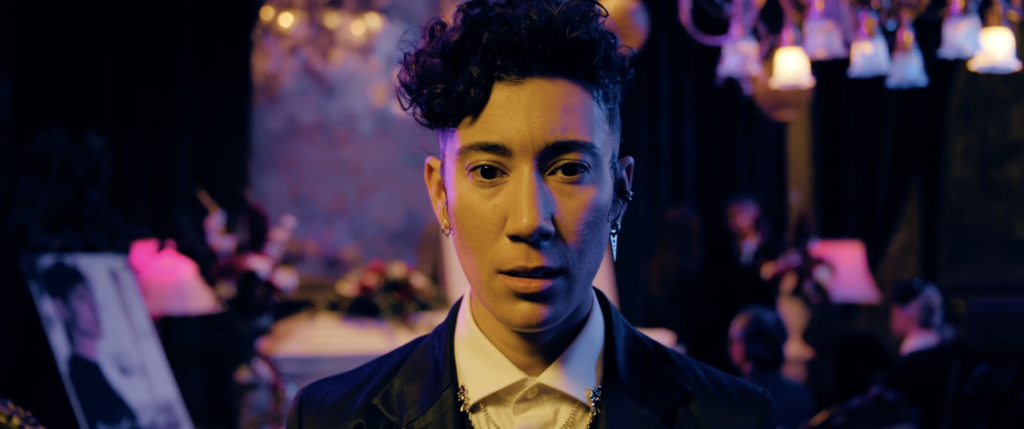
You’ve assembled an impressive cast for Lesbophilia, including Lana Parrilla and Vico Ortiz. How did you approach casting, and what was it like working with such talented individuals?
I have the great honor of being friends with them. Lana, Noemi and I all worked on a feature together in 2018 and Lana was also an Executive Producer on my last short film, Hangry. I cast Vico in a drag fundraiser for The Dru Project in 2019 and have worked with them on a few projects since. Maya Nalli happens to be my wonderful life partner, and is an amazing talent in her own right. We’re all very close and supportive of each other – personally and professionally. I’ve always wanted an opportunity to work with this phenomenal group of actors, and wrote each of the roles with them in mind. Michelle could see them in each of the characters, and was equally thrilled to work with them.
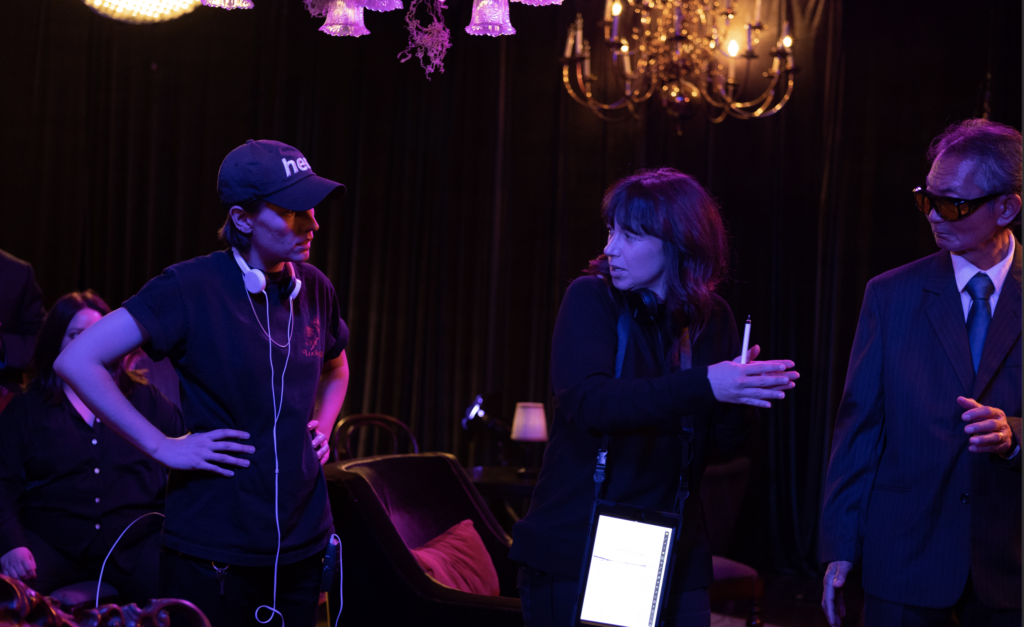
What do you hope audiences will take away from watching Lesbophilia?
The film has a few central themes and messages, but the biggest one is to love yourself. I used to question whether or not I was “enough” in relationships. Then I met Maya, and realized I’ll always be enough for the right person. Chase goes on a similar journey in the film. Eliana represents those of us who feel we have to identify a certain way or want certain things because of societal pressures. A lot of us are afraid to feel things freely, and even more afraid to accept those feelings. Eliana thinks that by giving up dating men she is losing a part of her bisexual identity, but her revelation is that maybe monogamy is the thing that truly scares her. Monique represents our inner dialogue, and Miss Madam represents absolute acceptance. I want to open up the conversation to address there are a multitude of experiences and identities, and that we don’t have to be defined by constructs that limit the depths of our humanity. I set the story against the backdrop of a funeral to represent the death of insecurity and fear.
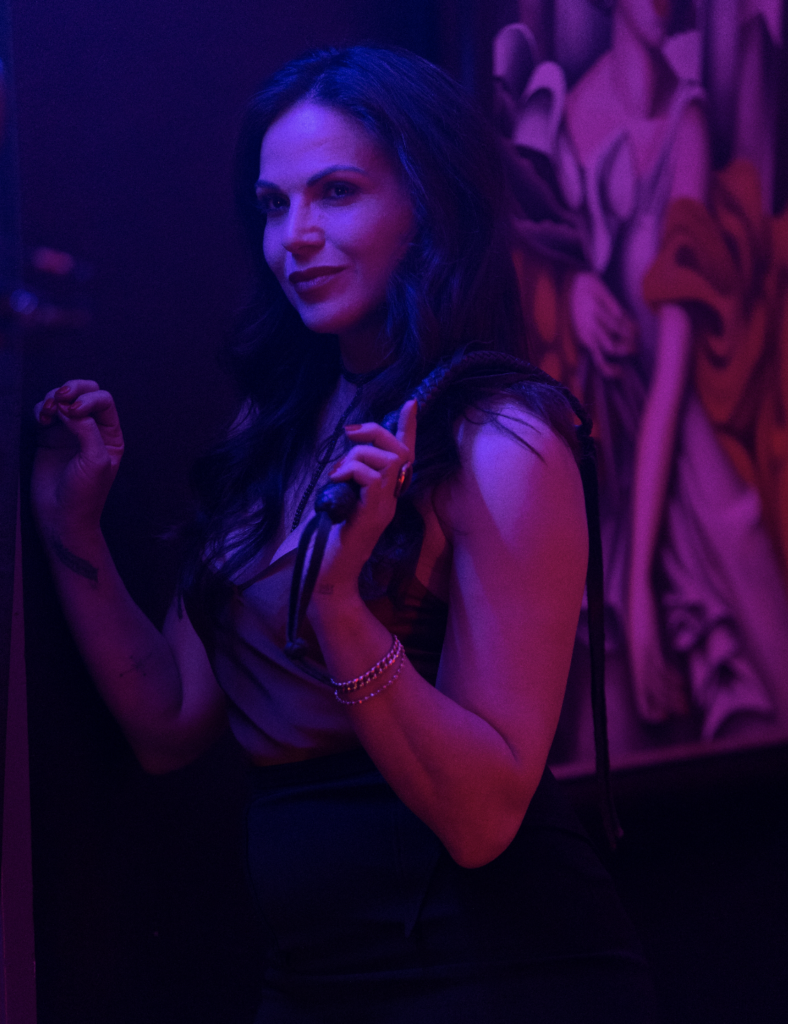
As a creator, what has been the most rewarding aspect of bringing this project to life?
Pulling the “art” out of heart break. Turning pain into pleasure. Creating something unique that sparks both conversation and controversy, and doing it with people that I love and admire. I never want to be the smartest or most talented person in the room, because if I am I won’t grow or improve. This film pushed my limits as a writer and producer, and challenged me in a big way creatively. It serves as another thread in the beautiful tapestry of legacy I plan to leave behind.
On the flip side, what were some of the most significant challenges you encountered during the creation of Lesbophilia, and how did you overcome them?
Social media can be both a blessing and a curse. On the one hand, it helped us build an audience for our film and reach our crowdfunding goal. On the other, it became a platform for public discourse that sometimes turned vitriolic. Most people were supportive, but some made assumptions and accusations about the film before we ever shot it. I’m very familiar with the saying “any press is good press” but it can be difficult to read hateful and negative things about yourself and your work online. Especially when it’s about something as personal as this story was to me. Being a writer – being a filmmaker – means being vulnerable in the most visible way and opening yourself up to a lot of public scrutiny. As gang violence prevention advocate Cesar A. Cruz once said “Art should comfort the disturbed and disturb the comforted.” I hope the people who judged the concept of the film so harshly will one day watch it and realize it’s just art – and maybe Lesbophilia sparked such rage and hysteria in them because it revealed something about how they feel about themselves.
Can you share any advice for aspiring filmmakers or creators who may be facing similar challenges or pursuing their passion projects?
Everything in life is accomplished one step at a time, and the only way to learn is to do. There’s never a good time to write a script or shoot a film. If you wait for the stars to align, your stories will never be told. Read books, watch videos, write a story, pick up a camera, move to that place, meet those people. Go after the life you want and never give up. I never questioned if I could do things – I just did them. Yes, I’ve made mistakes along the way, but those mistakes were life lessons. You learn and you pivot. If you never give up, then you’ll never fail.
Lastly, what’s next for you and Lesbophilia? Do you have any future plans or projects you’d like to share with us?
I recently signed with a new management company, Stagecoach Entertainment, and Lesbophilia premiered internationally at the Red Dawns Feminist and LGBTQ Film Festival in Slovenia on 3/9/24. Our U.S Premiere will be at the Wicked Queer: LGBTQ Film Festival in Boston on 4/14/24 which I’m excited to attend with other members of the team. We will then launch a lengthy festival run around the world, before hopefully landing a distribution deal on a streaming platform. As for what is up next, I’m currently seeking funding for my first feature film, Drag Me To Christmas, which is a modern adaptation of A Christmas Carol where Ebenezer Scrooge is a curmudgeonly lesbian and all the Ghosts of Christmas are drag performers. I believe the queer community deserves to be represented in a feel good holiday classic, and am eager to share this story with the world. My bestie, S.P. Batchelder is attached to direct and my dear friend Lana Parrilla has already signed on as an Executive Producer — the band is getting back together again!
